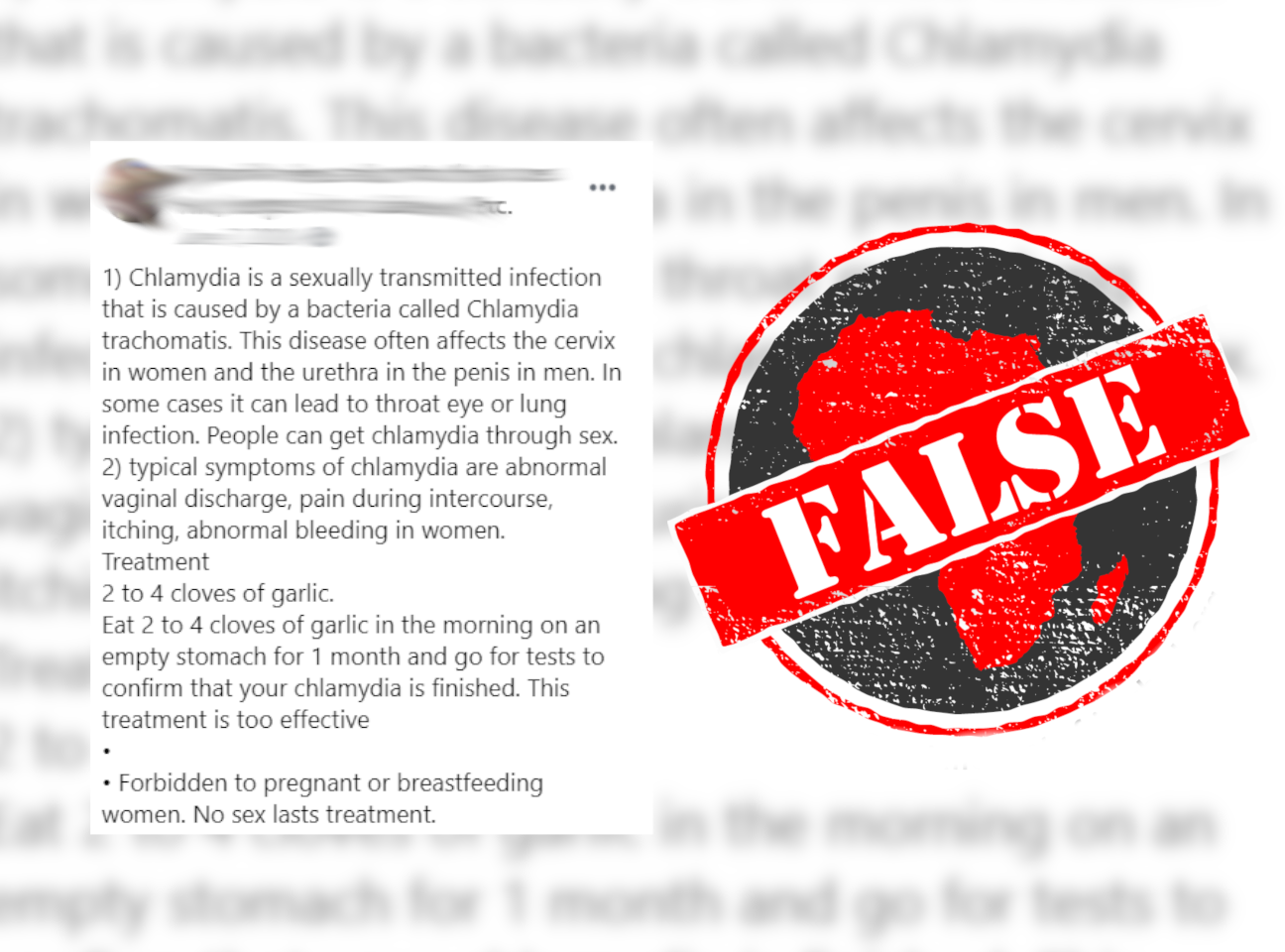Chlamydia is a sexually transmitted infection that affects both men and women. It is caused by the Chlamydia trachomatis bacteria and, if left untreated, could cause serious complications later.
But a message posted on a Nigeria-based Facebook page that promotes herbal cures claims that eating garlic on an empty stomach will cure chlamydia.
It reads: “Eat 2 to 4 cloves of garlic in the morning on an empty stomach for 1 month and go for tests to confirm that your chlamydia is finished. This treatment is too effective.”
Will this regimen cure chlamydia? We checked.

How do you know if you have chlamydia?
According to the US-based Mayo Clinic, signs and symptoms of infection by the Chlamydia trachomatis bacteria may include:
-
Painful urination
-
Vaginal discharge in women
-
Discharge from the penis in men
-
Painful sexual intercourse in women
-
Bleeding between periods and after sex in women
-
Testicular pain in men
And over the long term, the infection could cause permanent damage.
“Chlamydia infection can affect the eyes and cause blindness and damage the urinary tract if not managed well and treated over time,” Ademola Popoola, a senior lecturer and consultant urologist, told Africa Check.
Easily cured with antibiotics
“The basic treatment is antibiotics,” Popoola added.
The UK’s National Health Service gives similar advice.
“Chlamydia can be easily cured with antibiotics,” its advisory on the infection reads.
“Persons with chlamydia should abstain from sexual activity for seven days after single dose antibiotics or until completion of a seven-day course of antibiotics, to prevent spreading the infection to partners. It is important to take all of the medication prescribed to cure chlamydia.”
Eating garlic on an empty stomach won’t cure chlamydia. Consult your doctor instead.
Republish our content for free
For publishers: what to do if your post is rated false
A fact-checker has rated your Facebook or Instagram post as “false”, “altered”, “partly false” or “missing context”. This could have serious consequences. What do you do?
Click on our guide for the steps you should follow.
Publishers guideAfrica Check teams up with Facebook
Africa Check is a partner in Meta's third-party fact-checking programme to help stop the spread of false information on social media.
The content we rate as “false” will be downgraded on Facebook and Instagram. This means fewer people will see it.
You can also help identify false information on Facebook. This guide explains how.


Add new comment